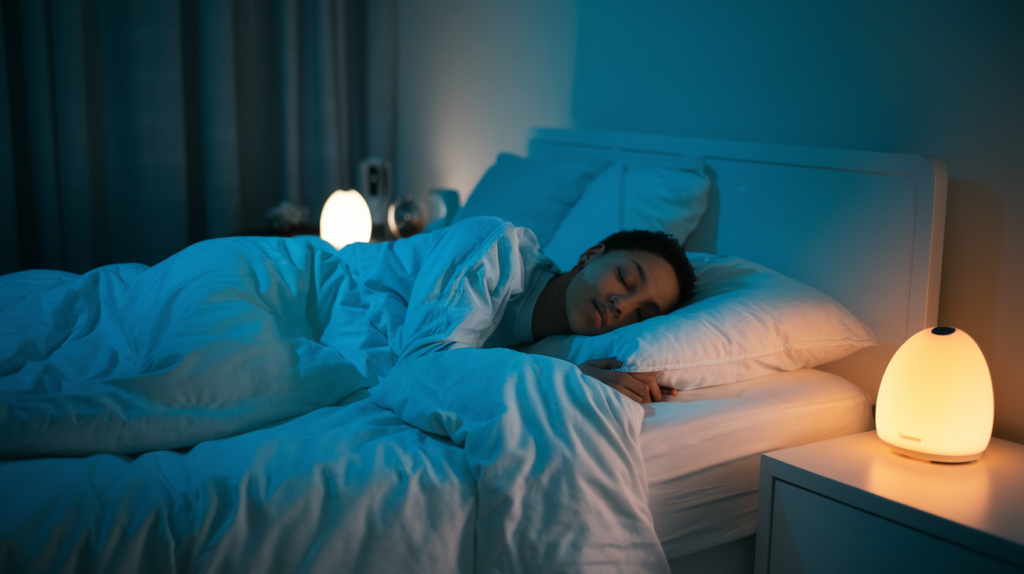
The High Cost of Losing Sleep: Why Recovery Takes Days and How Exercise Can Help Offset the Impact
In our fast-paced world, sleep often takes a backseat to work, social obligations, and digital distractions. Yet, even losing just one hour of sleep can have a profound impact on your physical and mental health, taking more than four days for your body to fully recover. Couple this with the increasing pressures of modern life, and it’s no surprise that sleep deprivation has become a silent epidemic.
However, there’s hope. Regular physical activity not only helps mitigate the negative effects of lost sleep but also significantly boosts your overall health and life expectancy. Research has shown that meeting—and even exceeding—recommended exercise guidelines can reduce the risk of early death by up to 31%.
This blog will dive deep into the science behind sleep recovery, its effects on health, and how integrating exercise into your routine can help combat the fallout from sleep deprivation.
Why Does Losing Just One Hour of Sleep Impact You So Much?
1. Circadian Rhythm Disruption
Your circadian rhythm, also known as your internal body clock, regulates your sleep-wake cycle. Losing even one hour of sleep can throw this rhythm off balance, leading to difficulty falling asleep, staying asleep, or waking up refreshed.
2. Hormonal Imbalances
Sleep deprivation alters the balance of critical hormones like cortisol, melatonin, and ghrelin, which regulate stress, sleep, and appetite. This imbalance can result in increased stress, poor-quality sleep, and overeating.
3. Cognitive Impairment
One hour of lost sleep can lead to reduced alertness, slower reaction times, and impaired decision-making. Studies show that even minor sleep deprivation affects brain function similarly to being under the influence of alcohol.
4. Physical Health Decline
• Immune System Weakness: Sleep is when your body produces infection-fighting antibodies. Skimping on sleep compromises your immune response.
• Cardiovascular Stress: Sleep deprivation increases blood pressure and inflammation, raising the risk of heart disease.
• Weight Gain: Hormonal changes can lead to overeating and poor food choices, contributing to weight gain.
Why Does Recovery Take Over Four Days?
1. Sleep Debt Accumulation
Sleep debt refers to the cumulative effect of not getting enough sleep. While one night of poor sleep might seem minor, the body requires multiple days of consistent rest to fully recover its balance.
2. Disrupted Deep Sleep Cycles
Deep sleep is when the body performs critical repairs and detoxification processes. Losing just an hour of sleep can reduce the time spent in these restorative stages, prolonging recovery.
3. Increased Stress Load
Sleep deprivation triggers a stress response in the body, which takes time to subside even after returning to a normal sleep schedule.
How Physical Activity Offsets the Effects of Sleep Loss
1. Exercise Regulates Circadian Rhythms
Regular physical activity helps stabilize your internal clock by promoting the production of sleep-regulating hormones like melatonin. Exercising outdoors in natural light further reinforces this effect by aligning your circadian rhythm with the natural light-dark cycle.
2. Exercise Boosts Deep Sleep
Moderate to vigorous exercise has been shown to increase the amount of time spent in deep sleep stages. This enhances recovery by promoting tissue repair, immune function, and cognitive processing.
3. Stress Reduction
Physical activity lowers cortisol levels, the stress hormone that spikes during sleep deprivation. Activities like yoga and aerobic exercise have particularly strong stress-reducing effects.
4. Improved Mood and Mental Clarity
Exercise stimulates the release of endorphins and serotonin, which improve mood, enhance focus, and counteract the cognitive fog caused by lost sleep.
The Science of Exercise and Longevity
In addition to mitigating the effects of sleep deprivation, exercise has been proven to extend life expectancy. A study published in Circulation found that meeting minimum physical activity guidelines (150–300 minutes of moderate-intensity or 75–150 minutes of vigorous-intensity exercise per week) can reduce the risk of early death by up to 21%.
Key Findings:
• Doubling or quadrupling these activity levels further lowers the risk of early death by up to 31%.
• Regular exercise improves heart health, reduces inflammation, and enhances metabolic function—all of which are compromised by sleep deprivation.
How to Incorporate Exercise to Optimize Sleep Recovery
1. Start with Moderate Activity
If you’re new to exercise, start with 20–30 minutes of moderate activity, like brisk walking or cycling, and gradually increase the intensity and duration.
2. Choose the Right Time
• Morning Exercise: Helps reset your circadian rhythm and promotes alertness throughout the day.
• Evening Exercise: Can help you unwind and reduce stress, but avoid vigorous activity right before bed.
3. Incorporate Strength Training
In addition to aerobic exercise, strength training builds muscle mass and enhances metabolism, contributing to overall health and better sleep.
4. Make It Fun
Choose activities you enjoy to ensure consistency. This could be dancing, swimming, hiking, or yoga.
5. Track Your Progress
Use fitness trackers to monitor your activity levels, sleep quality, and recovery.
Recommended Product:
• Fitness and Sleep Tracker: A dual-purpose device to monitor exercise and sleep patterns for optimized health.
Tools and Strategies for Better Sleep and Recovery
1. Weighted Blankets
Weighted blankets simulate deep pressure stimulation, which reduces cortisol levels and promotes relaxation.
Recommended Product:
• Weighted Blanket: Perfect for winding down after a long day.
2. White Noise Machines
Sound therapy masks distractions and creates a calming environment for uninterrupted sleep.
Recommended Product:
• White Noise Machine: Ideal for blocking out environmental noise.
3. Smart Lighting Systems
Smart lights simulate natural daylight cycles, helping you wake up refreshed and maintain consistent energy levels.
Recommended Product:
• Smart Wake-Up Light: Supports circadian rhythm alignment.
4. Comfortable Sleep Gear
Invest in a high-quality mattress, ergonomic pillows, and cooling sheets to create the ultimate sleep sanctuary.
Recommended Product:
• Smart Mattress: Tracks your sleep and adjusts comfort levels in real-time.
5. Sleep Supplements
Natural supplements like magnesium or melatonin can support relaxation and improve sleep quality.
Recommended Product:
• Magnesium Glycinate Gummies: A natural way to calm your mind and body.
Practical Tips for Minimizing Sleep Loss
1. Stick to a Consistent Schedule
Go to bed and wake up at the same time every day to regulate your circadian rhythm.
2. Limit Screen Time Before Bed
Blue light from screens can disrupt melatonin production. Consider using blue light glasses if you must use devices at night.
3. Avoid Stimulants in the Evening
Caffeine and nicotine can interfere with your ability to fall asleep.
4. Create a Sleep Sanctuary
Darken your bedroom with blackout curtains, reduce noise, and maintain a cool temperature.
5. Wind Down with Relaxation Techniques
Try mindfulness meditation, deep breathing, or a warm bath to relax your body and mind.
Conclusion: Invest in Sleep and Physical Activity for a Healthier Life
The effects of losing just one hour of sleep may seem insignificant, but they ripple through your body and mind, taking days to recover fully. By integrating regular physical activity and leveraging sleep-enhancing tools, you can offset the damage and improve your overall health.
Explore our curated selection of sleep tech and wellness products at DeepSleepDepot.com to create the ultimate environment for recovery and restoration. Your health and longevity depend on it.
